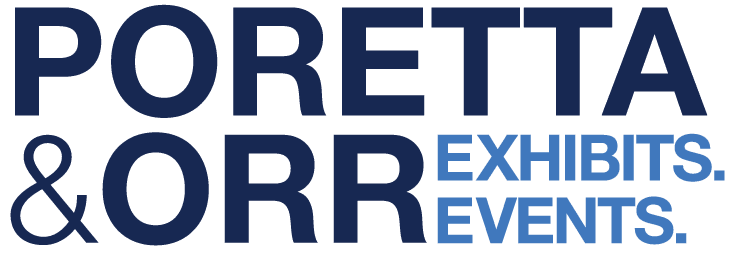So you’re a Director of Tradeshows / Exhibits. Does anyone really understand what you do and the value you bring to the table? And I’m not just talking about your friends and family, I’m talking about your internal colleagues. If the answer is no, it’s time to take action. You need to be proactive and educate those around you that you do more than set-up a booth and make sure it is delivered to the hall on time. So much more!

“If you done it, it ain’t bragging. ~ Walt Whitman
Often times our jobs and even our industry, are completely undervalued. Our jobs are often viewed by many as glamorous positions that allow us to jet off to wonderful locations all across the globe, and while our job definitely has perks, it can be anything but glamorous on most days of the week. First, this type of work is not for the faint of heart. At one time, our job was typically viewed as logistical in nature, but the industry has changed. Strategy and industry knowledge play a huge part in our jobs and help us develop successful exhibit programs … so let your colleagues know! Remember, as Walt Whitman said, “If you’ve done it, it ain’t bragging.” But you have to tell people. You have to have a plan.
I recall something that transpired a couple years ago. It is still quite relevant, especially in these times of mergers and acquisitions. You don’t know what is around the corner. A client had a team member give their notice, creating a job opening for this critical role on the team. As is typical, the Human Resources (H.R.) manager was called to assist with these efforts. The H.R. manager asked the Director of Conventions for a job description to use to seek qualified applicants. A couple days later the H.R. manager called back and asked, “Can this job be absorbed by the others within the department?” Uh, oh.
So, now you’ve lost a team member. Quite a few lessons can be learned. Clearly someone didn’t have a good sense about the role this person played on the team. If they did, suggesting the other teammates absorb this job, would not even have been suggested. Make sure that you regularly interact with the many departments that impact your program. Have regular meetings and keep people in the loop. Essentially, develop relationships and keep your program top of mind with your colleagues. Especially any wins and successes you and the team experience.
In this particular case, a face-to-face meeting was needed with H.R. to develop a job description and to explain what and how the role in question impacted the exhibit program and how vital it was. Being proactive and educating those around you at regular intervals throughout the year, is vital. Don’t assume colleagues understand what you and your team do. Help them understand that you and your team are completely immersed and knowledgeable with every aspect of the exhibit program. Explain and shout from the roof tops if necessary, that your knowledge includes expertise in Branding, Legal & Regulatory, Budgeting, Sponsorship, Creative, Traffic Generation, People Management, Relationship Building, Meetings Planning, Lead Generation, Metrics, etc. You need to convey that you do not just ensure the booth is delivered on time and that the signs are hung.
Again, share information regularly about the successes of your program. And if it is lacking success, be sure to demonstrate why. Create a baseline for benchmarking if you launch a new initiative so you can demonstrate its success or lack thereof. Be and think strategic. Share data that supports the results with upper management. Be able to explain it and share your thoughts and ideas for improvements. Do not wait for some monumental and impactful change, like a round of layoffs or cutbacks, to educate internally about the importance and value of your department.
There are many ways to broaden internal awareness regarding what your team does to support the overall business objectives for the exhibit program. Convey adequately that your team is no less invested in the company’s success than other departments. Demonstrate that given your responsibilities, you are intimately aware and astute about the brand, as well as the goals and objectives for the overall exhibit program.
After working with a large medical device company to enact some measures to demonstrate the strategic nature of their jobs to their colleagues, we found the following worked well. Some of the ideas are simple yet impactful if done regularly and with purpose. Relationship building is key. This can be accomplished in a number of ways and here are just a few:
• Regular conversations and information sharing with colleagues internally. Schedule regular lunch and learns and bring key stakeholders together. Be sure upper management and key influencers are invited and that the presentation is thorough, interesting and hits on points that would interest your audience. Demonstrate why your department is invaluable and highlight the strategy behind it all.
• Set goals and objectives and measure your success stories…and then share it with the right people and departments. Regularly.
• Once you have built a team that allow individuals to shine, tell their story. Those within the company will see your team thrive, be successful and work with enthusiasm. Enthusiasm is contagious. A formula of success, enthusiasm and data, is going to be hard for upper management to ignore.
• Go the extra mile when working with other departments. Change the mentality of being perceived as just an internal vendor. Be strategic, think outside-of-the-box and go the extra mile by providing data or research that will get you noticed and make you invaluable.
• Request to be included in strategy and planning meetings. Listen a lot but don’t be afraid to share the success your team has achieved and share your thoughts for creative solutions that either drive efficiencies, create sales or promote cost savings.
• Take time to share what you’ve learned from viewing other exhibits on the convention floor. Don’t be myopic. Walk around the exhibit floor, have conversations and file ideas away for future reference. Send a report to upper management on what you have learned.
This list can be expanded in any number of ways but begin to take steps that will facilitate those around you to elevate your status as a strategic partner. Make them understand you are not all about the logistics. You are an essential strategic partner that plays a pivotal role in creating a successful convention marketing and exhibit program. For those of you that are open to doing some extra work, it could pay big dividends in the future.

